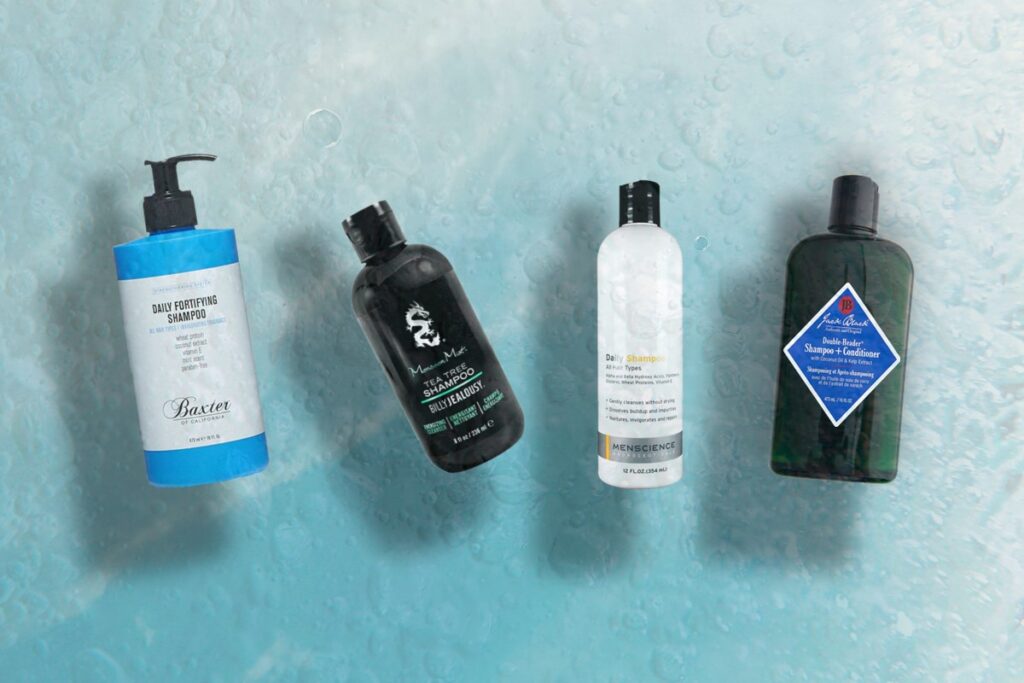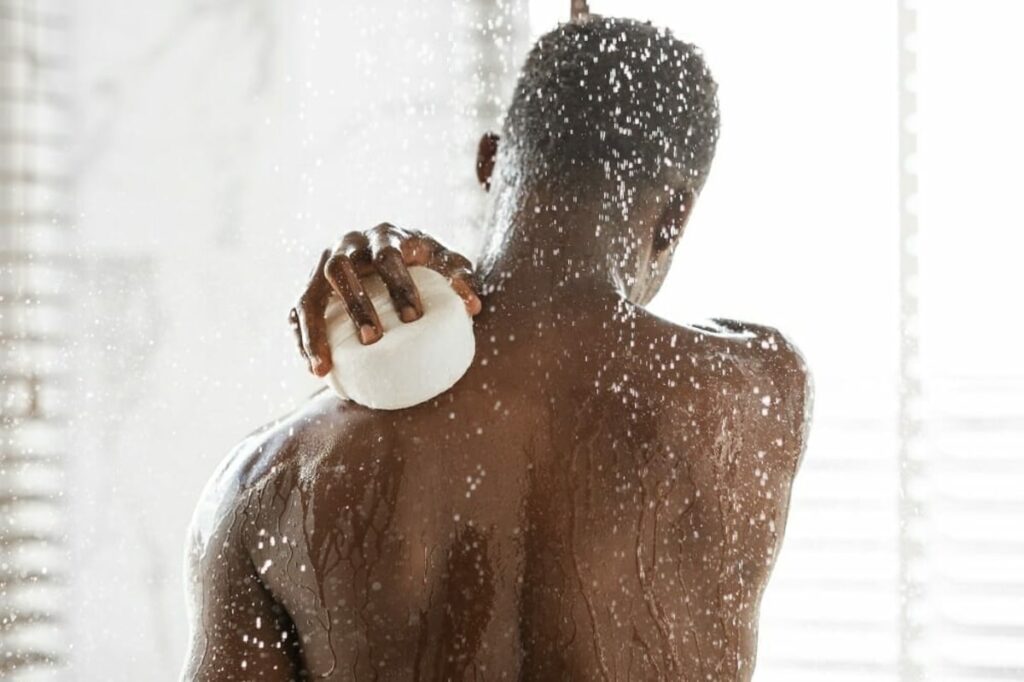The ideal beard should look shiny and groomed – not dusty and shaggy like electrical wires. A dab of beard oil is just enough to tame those scraggly hairs and get rid of flakes so that your entire facial hair looks neater and more styled.
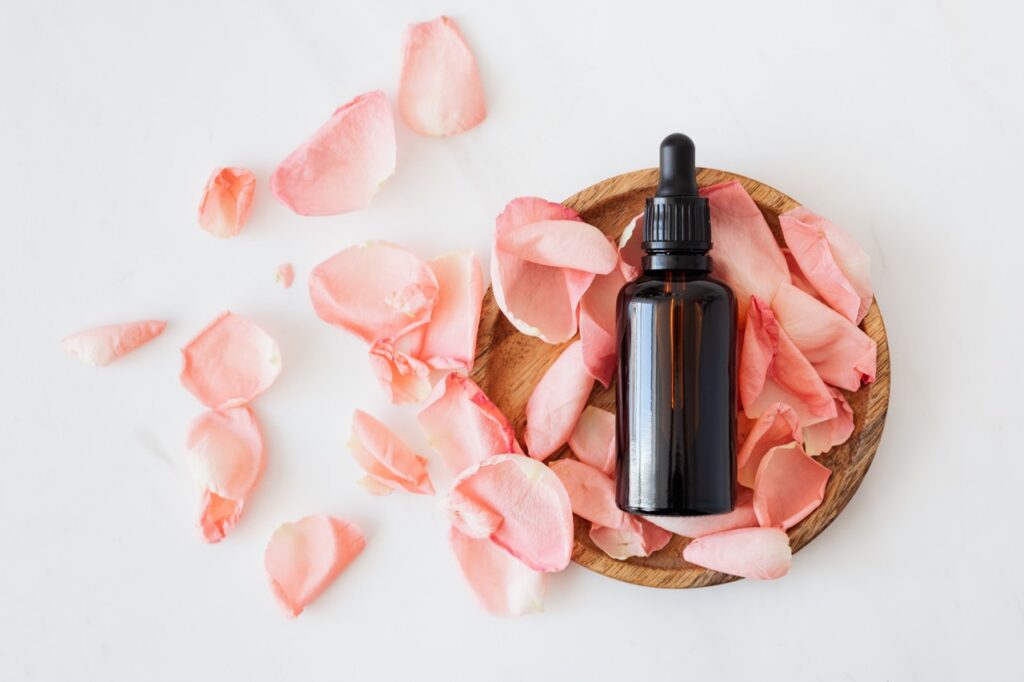
So, does beard oil work? Well, beard oil works by hydrating the beard and making it easier to style. It is the foundation of a great-looking beard. Sadly though, some bearded brethren don’t believe they need to use any products at all.
Facial hair needs to be taken care of just as much as we take care of the hair on our heads. Whether you have light scruff or a full beard, your beard deserves the very best. Not just for the missus but also for health reasons as you’ll find out later in this article.
So don’t wait till she expresses her discomfort about how your rough scruff feels against her face or anything else.
Hold on! What is beard oil? How does beard oil work? What are the benefits of beard oil? How do I apply beard oil? And what are the potential side effects?
First of all, that’s a lot of questions. And we will answer every one of them. Let’s start by answering the first one.
What Is Beard Oil?
Put simply, beard oil is a liquid substance that is made with several ingredients such as jojoba oil, coconut oil, grape seed oil, argan oil, hemp seed oil, and some other types of oil.
Some beard oil products contain just a single ingredient, however, most brands use two or more ingredients. Well, I’ll try to spare you some scientific jargon.
With that in mind, some of these ingredients have the ability to destroy or inhibit the growth of germs and reduce redness, pain, and heat.
These products try to imitate closely the natural oils that are found on the skin. That said, beard oil is either scented or unscented, using a blend of masculine scents. These scents vary from sweet to bitter.
Interestingly, beard oil can be used in place of aftershave or cologne because it moisturizes the skin and smells really nice. So the next time you run out of cologne… Nah! Before you get any ideas, I think you should stick to using these for what’s intended.
So what are the benefits of beard oil?
How Beard Oil Works: Advantages of Using Beard Oil Every Day
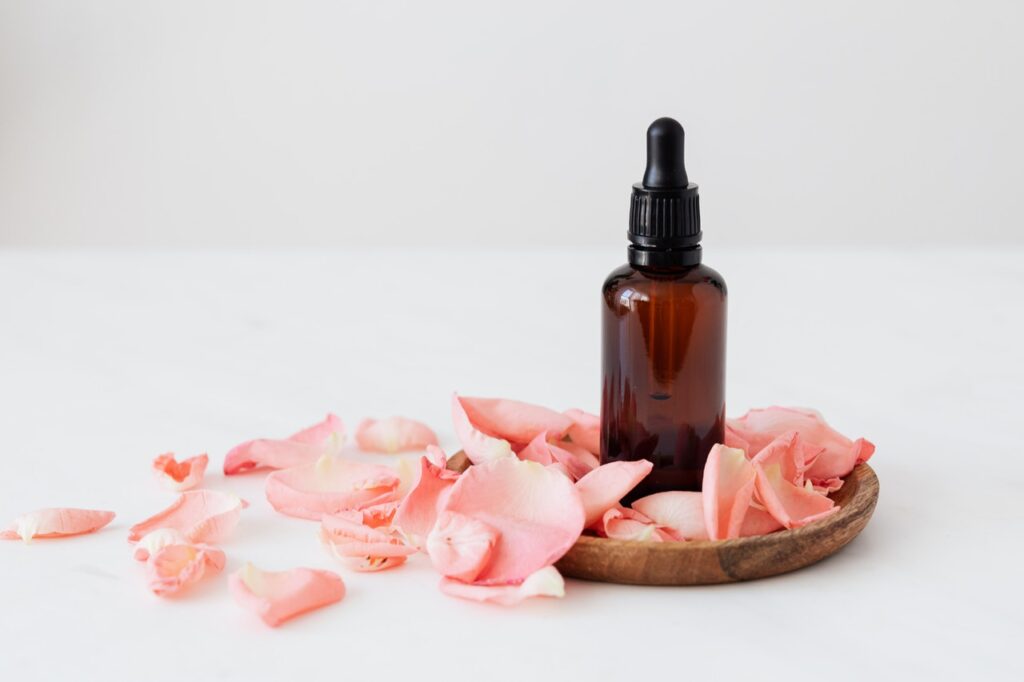
If you’re wondering how beard oil works, here are some advantages that’ll blow your mind.
1. Beard Oil Can Improve the Growth of Facial Hair
Oil extracts from jojoba, olive, coconut, argan, and sunflower are commonly used as the base in beard oil. Each is packed with antioxidants and vitamins that could well promote healthier hair follicles. They also moisturize the skin beneath your beards.
It is completely normal to admire full facial hair when you see one. There are a few reasons why a man’s beard may not be as full as the one he admires.
It could be genetics, hormonal imbalance, poor nutrition, excessive smoking, too much intake of alcohol, or just stress. A healthy lifestyle can do loads of good for your beard and skin. As for genetics, it may be difficult to counteract its effects. Beard oils work wonders but these aren’t magical portions.
Having said that, it may contain ingredients such as sandalwood and lavender oil, which could bring to bear conditions more conducive to beard growth.
Be that as it may, beard oil has other benefits.
2. Beard Oil Stops Beard Itch
Beard itchiness is a familiar foe — something most men have experienced at one or more points in their lives. It is so unpleasant that you may begin to contemplate shaving the beard altogether.
On the bright side, beard oil can get rid of this menace. As we mentioned earlier, beard oil mimics the natural oils found on the human skin to lubricate the skin and hair. Since itchiness is usually caused by dryness, using beard oil is an effective way to stop the discomfort that affects bearded folks.
Why do we have to apply an oil that imitates the natural ones found on our skin? Why don’t we just rely on the ones naturally present on our skin?
Here’s the catch: hair follicles have sebaceous glands. These glands secrete fatty lubricant matter called sebum. Sebum helps to keep your skin, face, and beard moisturized. But as your beard gets longer, these glands don’t produce enough sebum to moisturize the entire forest on your chin.
Since the sebum you have is all you can get, your sebaceous glands can no longer keep up with the weeks or months of beard growth. What happens next? Dry skin!
Now that’s just one of the several factors that can cause an itchy beard. Another cause of itchiness is one that occurs at the early growth stage of the beard.
Shaving your facial hair regularly can leave the edges jagged and sharp. As they begin to grow, the sharp edges may pierce your skin, causing irritation or itchiness.
This happened quite often to William during quarantine. He doesn’t keep a beard so whenever it grew to stubble he usually complained of itchiness. So I recommended beard oil to him.
The third reason for an itchy beard is poor hygiene. An accumulation of dirt, food particles, and dead skin can cause itchiness.
So having an itchy beard is about as guaranteed as it gets. Beard oil will soothe that godawful beard itch, promote healthy hair growth, soften your mane, and help with any type of dry skin.
3. Beard Oil Reduces Acne Breakouts
Does beard oil reduce acne breakouts? Really? I know it sounds rather counterintuitive but it’s true. To understand how it works let’s take a look at the causes of acne breakouts.
Acne is caused by a number of reasons, including the clogging of hair follicles by dirt, dust, food debris, and outdoor pollutants. Poor hygiene and stress can also aggravate acne.
Another cause of acne is skin dryness. When the skin underneath your beard is dry, the sebaceous glands may try to make up for it, leading to an overproduction of sebum. This may later cause acne breakouts.
Fortunately, beard oil acts as an amazing cleanser and moisturizer. The oil works its way into your pores and helps to cleanse impurities. It won’t clog your pores, which is one cause of acne breakouts.
Even more, some ingredients of beard oil products have anti-inflammatory and antimicrobial properties. (Sorry, I couldn’t help it. I will try not to use any more jargon).
Anti-inflammatory means it has the ability to reduce swelling, redness, heat, and pain and it initiates the elimination of harmful agents. Antimicrobial means it can destroy or inhibit the growth of microorganisms or germs that cause infections.
Some beard oil may contain some vitamins, including niacin which is known to inhibit acne. This makes beard oil a good choice to treat acne even if you don’t have beards. Some essential oils used in the making of beard oils can reduce the appearance of skin blemishes.
4. Beard Oil Prevents and Fights Dandruff
Beard dandruff, also known as beardruff, can be very disturbing and annoying. You scratch one for relief but cause another.
Beardruff is a real eyesore. Imagine the scenes, where you’re having a conversation with someone, then your beard gets itchy, and you can’t help but scratch it. Suddenly, white dusty flakes fly out of your beards as you scratch, and you notice your audience’s distraction as they try to avoid getting in the way.
Don’t worry, there’s light at the end of the tunnel!
Beard oil products keep the skin moisturized, soothing unflattering white flakes and softening the skin underneath your beard.
One can wrongly assume that beardruff only occurs if you’re dirty. Well, that isn’t always the case. Dandruff is not caused by poor hygiene, although it may be more obvious if you do not wash your beard regularly.
Beardruff is produced when the skin exfoliates excessively. It is quite common and can happen to anyone at any time. Harsh weather can dry the skin under your beard. Also, a yeast-like fungus that feeds on the oils on your scalp can cause beardruff.
One benefit of beard oil is, it may contain tea tree oil or other oils that can fight germs that cause beardruff.
5. Beard Oil Can Serve as a Conditioner
Most beard oils make use of other conditioners and moisturizers to make your hair soft and easy to style. The oil itself has conditioning properties. A well-conditioned beard can be easily styled and combed. This makes your overall beard grooming experience convenient.
A dab of beard oil will make your beard easy to manage, preventing it from sticking out like electrical wires. The good ones don’t contain toxic chemicals that irritate your facial hair and skin.
Be mindful of styling gels with ingredients that are too difficult to pronounce. These may be harmful to the skin beneath your beard. In such cases, beard oil is a fantastic alternative.
Although beard oil may not provide a firm hold like beard balm, it does a good job functioning as a mild leave-in conditioner. An added benefit of beard oil is that it’s made with natural ingredients.
6. Beard Oil Makes Beard Styling Easy
Beard maintenance is an incredibly important part of men’s grooming routine unless you don’t mind looking like Robinson Crusoe.
As your beard gets longer, styling it becomes ever so cumbersome. And it feels like the world is against you with every stroke of comb on a dry beard.
A dab of beard oil can make your scruffy-looking beards soft and easy to manage. This makes it easy to comb through the flourishing vegetation on your chin and they tend to be more obedient to styles when nourished sufficiently with beard oil.
The bottom line is, beard oil is hydrating to the skin and helps soften and tame beard hair, which means it also does double-duty as a styling agent.
7. Beard Oil Promotes Healthy Skin Underneath Your Beard
Not only can beard oil help to reduce acne breakouts, but it also helps to keep your skin healthy at all times. The ingredients in beard oil penetrate your facial hair follicles, cleansing, and helping them to look aesthetically pleasing.
Interestingly, many bearded brethren try to hide unhealthy-looking skin with a beard. The good news is, some beard oils can keep your skin tight, reducing the appearance of fine lines and wrinkles. So you need not worry about shaving to stubble.
Washing your beard regularly can improve the overall health of your skin and facial hair. There are some good shampoos out there that are mild on the skin and can eliminate germs, dirt, and dust.
8. Beard Oil Keeps Facial Hair Smelling Fresh
Earlier we mentioned that some men substitute cologne or aftershave with beard oil. That in itself tells you it smells great. And yes, it does!
Beard oil is available in a wide range of scents, ranging from fresh and summery to rich and sophisticated. So each time you use beard oil you have the added advantage of deciding whether or not to use cologne.
Now your beard smells just as good as it looks. Even so, some folks prefer the unscented variants. And there are loads of unscented beard oil if you’re sensitive to fragrances.
The best beard oils have a lot of benefits that’ll do your skin and facial hair a whole load of good. They are a crucial addition to your stock of grooming products.
9. The Skin Easily Absorbs Beard Oil
While beard oil makes your beard look healthier and well-groomed. It doesn’t make it look wet or greasy.
When beard oil is properly applied to your facial hair, it isn’t very obvious because it’s lightweight and non-greasy. It sinks into your skin quickly.
The thought of adding oil to your beard might not be welcomed by some folks because they think it’ll leave their beard looking wet, greasy, and unbecoming. But that isn’t the case with good beard oil.
Beard balm and wax are, by nature, heavier than beard oil. This is because beard growth oil employs a lightweight formula. This is not to undermine the quality of other products. For personal reasons, some prefer non-greasy products.
Now that you know the benefits of beard oil, you might also want to know the types of oil used in making beard oil products. Keep reading to learn more!
Types of Oils Used in Making Beard Oil Products
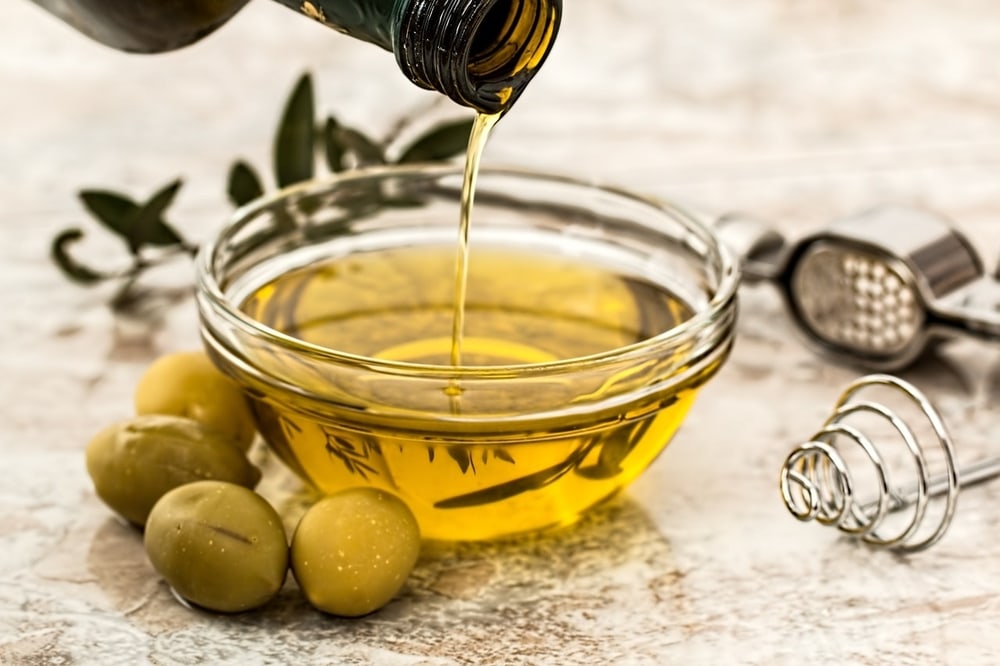
The oils used to make beard oil products can be classified into two major categories — essential oils and carrier oils.
Okay, think of these two like the Winchester brothers. They need each other to function at optimal levels. So let’s start with the somewhat elder brother.
Essential Oils
Essential oils are obtained from plants through steaming, cold pressing, or other methods. And they carry the scent and flavor of the plant from which it is obtained.
The way the oils are derived is very important because essential oils that are obtained through chemical processes are not considered true essential oils.
There are loads of essential oils that offer several health benefits. Some essential oils and health benefits associated with them are;
- Chamomile oil helps fade spots, eliminate acne scars, and fight breakouts. Due to its anti-inflammatory and antiseptic properties, it often helps to treat mild skin irritations.
- Tea Tree oil is used to destroy germs, and increase resistance to and counteract the effects of infectious agents. It helps to soothe and relieve painful and irritated skin.
- Bergamot oil relaxes your nerves and is used to treat eczema and other skin conditions. it is also effective against painful cysts and pimples.
- Peppermint oil naturally cleanses the skin and fights infections. It has a cooling effect that soothes irritation and inflammation due to acne. It rejuvenates and brightens dull skin.
- Frankincense oil is said to treat dry skin and reduce the appearance of wrinkles, age spots, scars, and stretch marks. It has the ability to strengthen skin and improve its tone, elasticity, and defense.
- Lemon oil helps in preventing and fighting skin problems such as acne, wrinkles, pigmentation, and dark spots. The free radicals play a very important role in this process. They are also rich in antioxidants which aid in removing harmful toxins from the skin.
- Sandalwood oil is rich in antioxidants and has antiseptic properties that prevent pimples, acne, and sores from developing. It can also keep the skin from sagging.
- Jasmine oil is capable of removing acne spots, stretch marks, and scars.
- Cedarwood oil can be used for dry scalp and eczema. It helps prevent skin peeling associated with eczema.
- Lavender oil is obtained from the lavender plant. It has the ability to lessen acne, help tone the skin, and reduce wrinkles, redness, blotchy patches, and acne scarring. It also helps to improve hair health.
- Rose oil is packed with an array of vitamins, helping skin heal from scars and moisturizing it. This keeps the skin soft, fresh, and youthful.
- Ylang-Ylang oil has hydrating properties. It can be used to treat some skin conditions.
Note: Essential oils are extremely concentrated and as a result may cause skin irritation if applied to the skin directly. That is why they are diluted in carrier oils.
Now let’s talk about the other brother — carrier oils.
Carrier Oils
Carrier oils make essential oils safe to use by diluting them and “carrying” them to your skin. They are just as important for your beard health because they help the skin beneath your beard to absorb essential oils in the right quantity.
Unlike essential oils, most carrier oils are unscented or lightly scented and don’t evaporate. Carrier oils do not interfere with an essential oil’s therapeutic properties. Also, they can be used alone to nourish your skin.
Carrier oils are the primary ingredient in beard oil, making up to ninety percent. It can be used in combination with other ingredients like vitamin E, enhancing its overall benefits.
Here are eleven carrier oils and the benefits associated with them.
- Avocado oil is used to correct the effects of dry skin, but if you have acne-prone skin it is probably best to avoid products that contain avocado oil.
- Black seed oil aids in soothing skin issues like acne, psoriasis, and eczema. It is a common ingredient in massage oils, facial and skincare products.
- The high amounts of vitamins A and C in rosehip oil help it to combat acne, restore youthful skin, and undo the effects of the sun on your skin.
- Coconut oil nourishes the skin with fatty acids and polyphenols. Like black seed oil, it is also used for massage and skin care.
- Apricot kernel oil is said to calm skin irritation, itchy, and flaky skin. With this in mind, it serves as a good carrier oil for bath oil, massage oils, and beard growth oil.
- It is believed that sunflower oil soothes irritated skin under the beard, and softens and moisturizes it. It is also good for general skin care.
- Grapeseed oil is lightweight, so it easily penetrates the skin beneath your beard, which helps in the absorption of essential oils. It has a neutral scent.
- Argan oil treats beard hair and the flaky skin underneath, corrects wrinkles, and calms inflamed skin.
- Like Grape seed oil, jojoba oil absorbs easily into the skin and doesn’t clog pores. It is the ideal carrier oil for people with acne-prone skin.
- If you like thick oil then you’ll like fatty-acids-rich olive oil. This is good for cleansing and moisturizing dry skin. It is also used in facial cleansers, beard hair care, and soaps. In addition, its high viscosity (or thickness) makes it a good choice in winter.
- Sweet almond oil is a very common ingredient in carrier oils for skincare. It is also used in soaps. I like the faint flavor of sweet almond oil, ever so subtle you might not even notice it.
Note: If you have allergies to any of these oils, check what the beard oil is made of before making a purchase.
That said, you can decide to make your own product and carefully select oils you aren’t allergic to.
How to Make Beard Oil
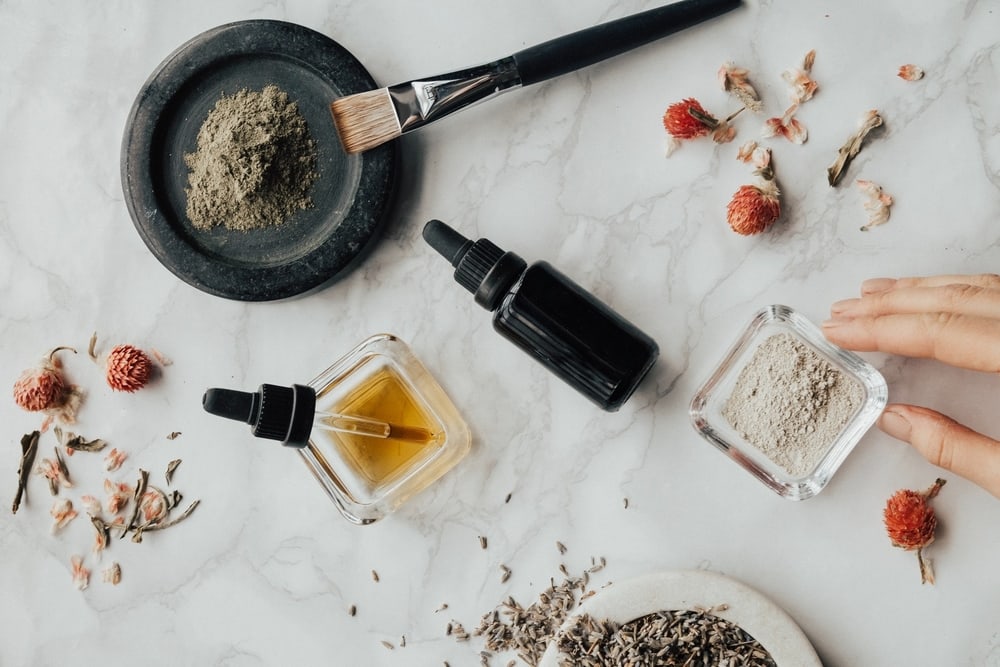
Since beard oil is so cool, why don’t I make it?
Well, if you have the resources, you can, and it is quite easy to make. Ladies and gentlemen of the DIY community put on your apron.
We’ve already mentioned the types of oils you can use, though not exhaustively, but it pretty much summarises it. And you also know why you need essential oils in small quantities.
1. Get Ready!
To make this amazing product you need the following:
- Carrier oil,
- Essential oil,
- Containers (2 to 3 ounces), and
- A small funnel.
2. Turn Some Carrier Oil Into a Container
At this point, you can decide to make a blend of carrier oil or use just a single one. If you choose multiple carrier oil make sure to stir properly.
3. Add a Few Drops of Essential Oil
Essential oil is best used in small quantities as they are often too concentrated and can cause skin irritation if used in large quantities.
A good ratio is:
5 drops of essential oil for 1 US tablespoon of carrier oil. That gives us 10 drops of essential oil for 1 US fluid ounce of carrier oil.
Mix thoroughly, and test it for scent and consistency to make sure you get the perfect blend.
4. Store in Amber Bottles
It is best to store beard oil in opaque bottles because exposure to sunlight can ruin it. Use an amber glass bottle with a dropper top to store beard oil. You may decide to spend a couple of bucks on larger bottles when you get more confident about your beard oil production skills.
Perhaps you could start your own beard company! With a little refinement and creativity, you can make some really amazing blends.
Whether you buy or make your beard oil, you’ll definitely want to put it on. Here is what experts say you should do.
How to Apply Beard Oil for Beginners
It is advisable to put on beard oil first thing after showering or cleansing. This way, your hair follicles, and pores are open and can easily absorb the oil.
We tend to think ‘more is better,’ but just a few drops of most things is plenty.
So here’s how it’s done:
- Put a few drops of beard oil into your hand, rub and massage it throughout your beard, in a downward motion.
- If your beard is longer. Use a comb to make sure the product coats every hair and moisturizes your skin.
- The amount of oil for your beard varies on its length and thickness. A few more drops would be appropriate when your facial hair gets longer.
You don’t have to pat your beard with a towel before applying beard oil. Just let it air-dry, then apply when your beard is damp, not drenched. The moisture left on your beard will aid its absorption.
Are there any potential side effects? Let’s find out!
The Side Effects of Using Beard Oil
There are several types of oils used in beard oil, ensure to select beard oil that doesn’t contain an ingredient that may cause allergies.
Wash your face thoroughly with clean water if you notice any allergic reaction.
Some potential side effects of beard oil are:
- It may cause a burning sensation.
- Itching or redness may occur.
- It may cause hives. They are usually flesh-colored, red, or pink, and sometimes they sting or hurt. There are several potential triggers. So if you notice hives, your body may be reacting to something.
Note: If you notice any skin irritation, it may be that the essential oil wasn’t properly diluted. Make sure to get quality beard oil. If you take the DIY route, dilute the essential oil with adequate amounts of carrier oil.
Takeaway
Beard oil is the foundation of a great beard and is designed to keep the skin underneath your beard healthy. The benefits of beard oil are simply too numerous to mention, making it an elixir for maintaining your beard.
Having learned how beard oil works, there’s no doubt as to how you’ll respond if someone asks: does beard oil work? You can confidently say yes and show them this article. It can help with beard itch, patchy beard, and dandruff, although it hasn’t been scientifically proven to make beard grow faster.
Additionally, it makes the beard feel softer, fuller, and lusher, keeping the skin and facial hair healthy. Therefore, adding beard oil to your grooming routine is by all means necessary.
About the Author

Dante Morton
Grooming ProfessionalDante Morton is a grooming professional and fashion expert. He has a jovial personality and a passion for skincare, as well as styling the hair and beards of black men. Before joining GroomHour, Dante worked with several big players in the beauty industry. Join Dante and several monthly readers on GroomHour.com, and enrich your lifestyle with reliable grooming resources.


